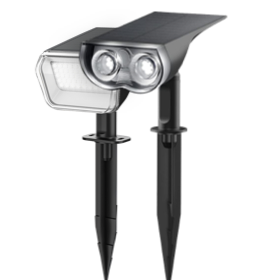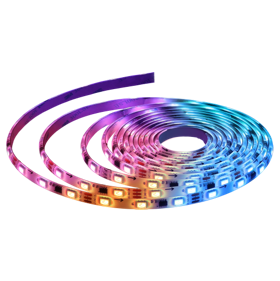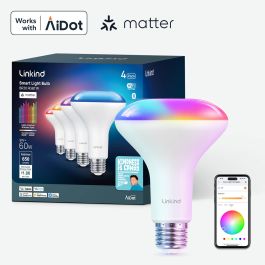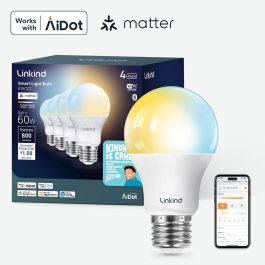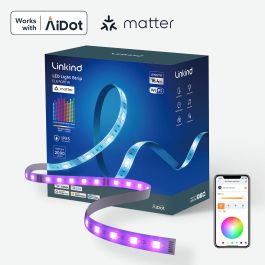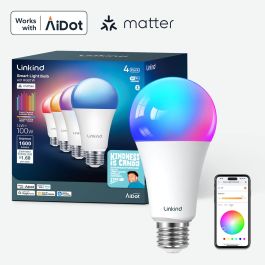Prong Light Bulbs: Types, Uses, and Buying Tips
Light bulbs are an essential part of our daily lives, but not all bulbs are created equal. If you've ever encountered a light bulb with two prongs and wondered about its specifics, you're in the right place. This comprehensive guide will walk you through everything you need to know about prong light bulbs, helping you make informed decisions for your lighting needs.

What Are Prong Light Bulbs?
Prong light bulbs, also known as pin base light bulbs, are a unique type of lighting solution characterized by their distinctive two-prong or multi-pin base design. Unlike traditional screw-in bulbs, these light bulbs connect to fixtures using a pin-style base that slides and locks into place. This design offers several advantages and is commonly used in various lighting applications, from residential to commercial settings.
Key Characteristics of Prong Light Bulbs
- Compact design with precise electrical connections
- Secure locking mechanism in light fixtures
- Available in multiple pin configurations
- Commonly used in specialized lighting applications
- Often more energy-efficient than traditional bulb types
Types of Prong Light Bulbs
1. Two-Prong Light Bulbs
Two-prong light bulbs are the most straightforward pin base lighting option. These small light bulbs with two prongs are typically used in:
- Decorative lighting
- Landscape lighting
- Specialized appliance lighting
- Compact fixture applications
2. LED Bulbs with Prongs
LED technology has revolutionized the prong light bulb market. LED bulbs with prongs offer:
- Exceptional energy efficiency
- Longer lifespan compared to traditional bulbs
- Lower heat emission
- Versatile applications in residential and commercial spaces
3. Pin Type Light Bulbs in Different Configurations
While two-prong designs are common, pin type light bulbs come in various configurations:
- G4 pins (4mm spacing)
- G9 pins (9mm spacing)
- GU10 pins (twist-lock base)
- Bi-pin configurations with different pin lengths and arrangements
Common Applications of Prong Light Bulbs
Residential Uses
- Under-cabinet lighting
- Accent lighting
- Pendant light fixtures
- Bathroom vanity lights
- Recessed lighting systems
Commercial and Specialized Applications
- Display lighting
- Office lighting
- Retail showcase illumination
- Museum and gallery lighting
- Medical and laboratory environments
How to Choose the Right Prong Light Bulb
When selecting a prong light bulb, consider the following factors:
1. Lightbulb Type
Measure and match the exact pin configuration of your existing fixture. Common types include:
- Bi-pin bases
- Single-ended bases
- Double-ended bases
2. Wattage and Brightness
Determine the appropriate brightness level for your specific lighting needs:
- Lower wattage for ambient or accent lighting
- Higher wattage for task-oriented spaces
- Consider lumens, not just watts, for accurate brightness assessment
3. Color Temperature
Choose a color temperature that suits your environment:
- Warm white (2700-3000K): Cozy, relaxing spaces
- Cool white (4000-5000K): Work areas, kitchens
- Daylight (5000-6500K): Detailed tasks, creative spaces
4. Energy Efficiency
Opt for LED prong light bulbs to maximize energy savings and reduce long-term costs.
Recommend Prong Light Bulbs
|
Category |
Base Type |
Features |
Applications |
|
2-Prong Twist |
Energy-saving, wet-rated, 5000K light |
Indoor and outdoor use |
|
|
2-Prong Twist |
Dimmable, energy-efficient, 3000K light |
Bedrooms, kitchens, offices |
|
|
Bi-Pin |
Bright white light, compact design |
Task and accent lighting |
|
|
GU10 Pin Base |
Dimmable, soft white light |
Spotlights and floodlights |
Recommend Light Bulb: Linkind A19 Matter Light Bulbs RGBTW
For those looking for a smart, energy-efficient option, Linkind A19 Matter Light Bulbs RGBTW is an excellent choice. This Matter Light Bulbs offer seamless integration with Alexa, Google Home, and Apple HomeKit. They provide adjustable white and RGB lighting, are energy-efficient (9W), and feature voice control and scheduling. Dual connectivity ensures stable operation.
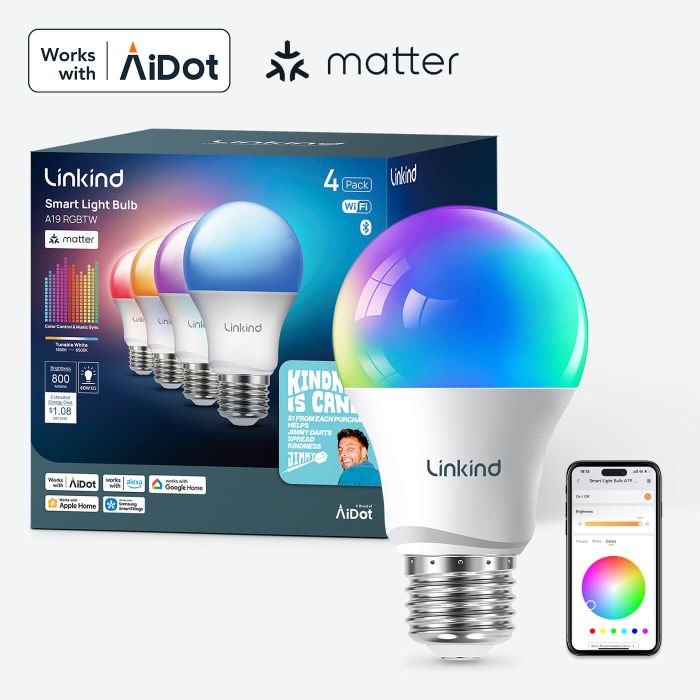
-
Seamless & Stable Connectivity: Linkind smart bulbs feature dual Wi-Fi/Bluetooth for reliable control anywhere. Wi-Fi enables remote access; Bluetooth serves as backup. Quick 5-second reconnection after outages.
-
Matter-Enabled: Matter-compatible bulbs work with Apple, Google, Amazon & Samsung ecosystems. Control all from one app—schedule, dim, and create scenes easily.
-
Sync Lights to Music: Transform spaces with two sync modes—synchronized for uniform beat-matching or asynchronous for multi-color displays that respond independently to music.
-
Scene Modes: 104 presets and 16 million colors give complete creative control. Personalize any space with one tap for movies, gaming, or relaxation.
-
True-to-Life Colors: CRI 90+ ensures rich, natural tones. Adjust from warm 1,800K to crisp 6,500K daylight, or explore endless color options for any mood.
Installation Tips for Prong Light Bulbs
1. Always turn off electricity before changing bulbs
2. Carefully align pins with fixture socket
3. Gently push and twist (if required by the specific design)
4. Ensure a secure, flush connection
5. Avoid forcing the bulb if it doesn't fit easily
Conclusion
Prong light bulbs represent a versatile and efficient lighting solution for numerous applications. By understanding their types, uses, and selection criteria, you can make informed decisions that enhance both the functionality and aesthetics of your lighting setup.
Whether you're looking to upgrade your home lighting, design a commercial space, or simply replace an existing bulb, prong light bulbs offer a reliable and innovative solution.
FAQs About Prong Light Bulbs
Q1. What Are Light Bulbs with Two Prongs Called?
Light bulbs with two prongs are typically referred to as:
- Pin base light bulbs
- Bi-pin bulbs
- Prong light bulbs
- Two-pin bulbs
Q2. Are Prong Light Bulbs More Expensive?
While initial costs might be slightly higher, LED prong light bulbs offer long-term savings through energy efficiency and extended lifespan.












